A Complete Guide to Pipe Cutters
This guide explains the different types of pipe cutters, how to use them, and which materials each type can cut.

What are Pipe Cutters?
Pipe cutters are tools used for slicing or cutting pipes. They are commonly used by plumbers due to their reliability and efficiency. In addition to providing clean, professional-quality cuts, pipe cutters are often more convenient, fast, and easy to use than alternatives such as hacksaws.
Cuts made with these tools are typically clean and neat, requiring very little deburring of the cut or clean-up of excess swarf. This makes pipe cutters a popular choice for many plumbers and professionals looking for an effective, safe way to cut pipework.
It’s also worth noting that pipe cutting tools can differ widely based on the specific material or materials that they are designed to cut. We will explore some of the most common types of pipe cutter and their uses further on in this guide, but as an overview, some of the primary materials that pipe cutters can cut include the following:
-
Plastic pipes
-
Copper pipes
-
Steel pipes
-
Aluminium pipes
How to Use a Pipe Cutter
In order to understand how to use a pipe cutter, we must first cover how pipe cutting tools work.
In a nutshell, they contain a sharp wheel which cuts through the pipe as it rotates. The wheel can penetrate further through the material the more rotations it makes. The number of rotations needed to completely cut through the pipe will depend on various influencing factors such as the material, size and thickness of the pipe, as well as the sharpness of the pipe cutter’s blade. It’s worth noting that beyond this top-level overview, different types of pipe cutters will work in slightly different ways. However, the above provides a quick and easy introduction to get you started and help you learn the basics of how to cut a pipe.
So, how should you use a pipe cutter? The following steps will provide you with the guidance you need to use a pipe cutter safely.
Step 1: If the pipe you will be working on is part of a plumbed-in system, make sure you have turned the water supply off before starting work.
Step 2: For adjustable pipe cutters, you will need to place the cutter around the pipe then adjust the tool to get the correct fit. If your cutter is non-adjustable, simply ensure it is gripping the pipe securely.
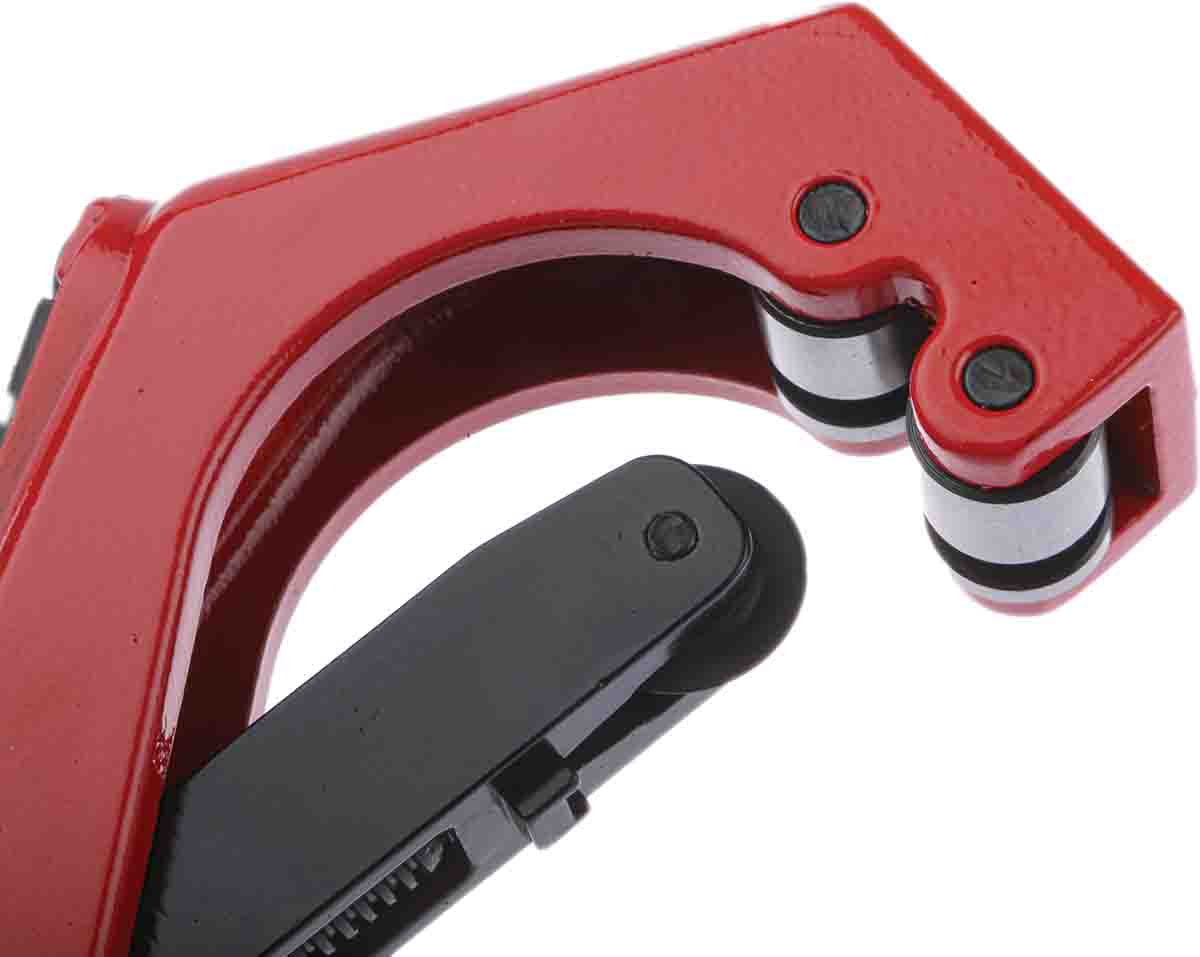
Step 3: Rotate the tool to cut the pipe, taking care not to move the cutter as this could result in an uneven cut or damaged pipe. As mentioned, the exact number of rotations required to complete the cut will vary.
Step 4: Once the task is finished and the pipe is cut, you may need to use a deburring tool to remove any sharp edges and ensure the cut edge of the pipe is smooth and clean.
Step 5: In order to ensure your pipe cutter remains at its best, make sure to clean it thoroughly before returning it to storage after use.
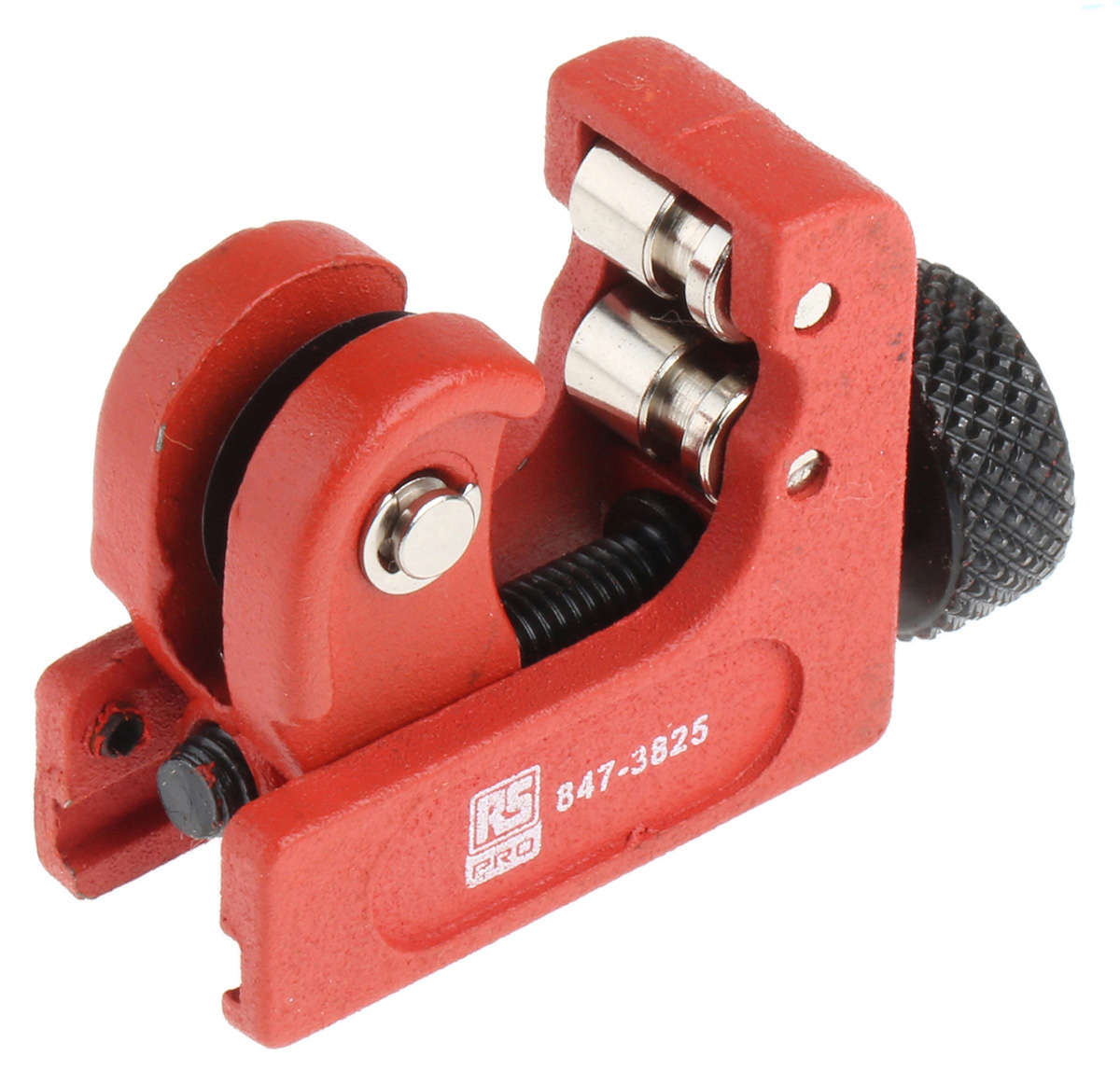
Popular Pipe Cutter Uses
Ideal for a wide range of pipe cutting uses, these tools are versatile and adaptable. Most pipe cutters can be used for applications including:
-
Cutting piping to the required length prior to installation
-
Carrying out piping repair work
-
Cutting out, removing and replacing damaged sections of pipework before replacement
You can find more information about some of the most popular uses for pipe cutting tools in the table below:
|
|
Material Cut |
Typical Uses and Applications |
 |
Cutting or slicing hard plastic pipes |
|
 |
Cutting thick copper pipes to the desired length |
|
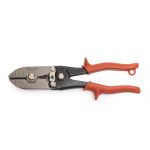 |
Suitable for cutting round metal pipes |
|
 |
Ideal for cutting or slicing soft metal pipes such as aluminium tubes and pipes |
|
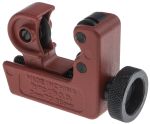 |
Suited to cutting copper pipes and tubing in a range of sizes |
Types of Pipe Cutter
Many different types of pipe cutter are available, so it’s important that you select the most suitable tool for your task. Using the right pipe cutter will make the job at hand much quicker and easier; the importance of the best tool should certainly not be overlooked.
Please see the following table to learn more about some of the most common types of pipe cutters, along with their uses and benefits:
|
|
Pipe Cutter Type |
Pipe Cutter Uses |
Pipe Cutter Benefits |
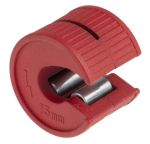 |
Used for cutting pipes |
Highly efficient, compact and easy to use |
|
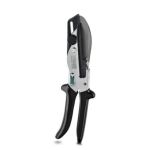 |
Used for cutting ductwork and ventilation pipes |
Clean, robust and easy to use |
|
 |
Ideal for cutting rubber hose |
Compact, lightweight and versatile |
|
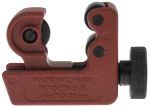 |
Midi tube cutter |
Compact and adjustable |
|
 |
Used for cutting piping |
Robust, durable and offers minimal risk of crushing or deforming the pipe |
|
 |
Suited for cutting pipes |
Features ratchet action to enable power and precision to be applied accurately and efficiently |
|
 |
Ideal for cutting pipes of different sizes |
Versatile, adjustable and highly precise |
Ratchet Pipe Cutters
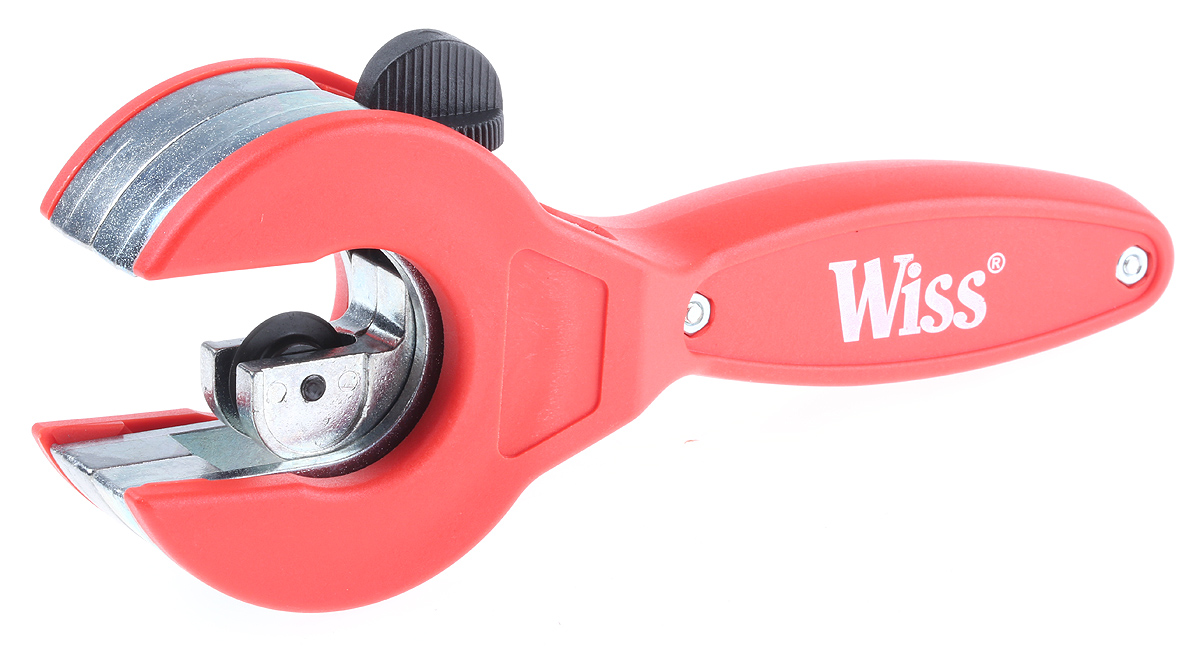
Ratchet pipe cutters are one of the most common varieties of this type of tool. Their design includes a ratchet handle attached to a wheel-shaped head, allowing for adjustments to be made so the tool can fit pipes of different sizes. Ratchet pipe cutters are ideal for working in-situ in small, confined, or difficult to reach areas.
View RangeHow to Choose the Best Pipe Cutter for You
Choosing the best pipe cutter for your needs will depend on several key factors. Most importantly, it is essential that you select a pipe cutter which can cut the material or materials that you need cutting, whether this is brass, copper, aluminium, or another material.
As there are so many variations and different types of pipe cutter available, you should also make sure to pick out any core features you would like from a pipe cutting tool. Examples include the tool’s cutting capacity, and whether you need a manual, battery-operated, or hydraulic pipe cutter.
Here is some additional guidance to help you select the best pipe cutter for your task:
-
If you will be using the tool in a confined space, a single-handed pipe cutter usually makes the job easier. Similarly, if the pipe you need to cut is in a particularly hard to reach area, a ratchet pipe cutter will provide extra length
-
Adjustable pipe cutters are ideal if you are looking for versatility or have various pipes of different sizes to cut
-
Heavy-duty cutters may be required for some materials. Always make sure to check the manufacturer’s instructions if you are unsure what materials a particular cutter is suitable for
Once you have done your research and established answers to all these questions, you should then be well-informed and able to select the best pipe cutter to suit your specific requirements.
FAQs
How Do You Cut a Copper Pipe in a Tight Space?
If you need to cut a copper pipe in a tight space, the task must be completed with care to avoid making an uneven cut or damaging surrounding pipework. If possible, it’s advisable to mark out where you want to make the cut before employing the pipe cutting tool as this will help you to make a clean cut, especially if space is tight. You should also make sure that your tool is a good fit for the size of the pipe in order to prevent any slipping or misalignment once you begin to make the cut.
Where space is tight, a single-handed tool is a sensible option as it requires less room to manoeuvre than certain other types of pipe cutter. If you are struggling to access the pipe, a long-handled or ratchet pipe cutter may also make it easier to reach the place where you need to make the cut. When you begin to cut, work slowly with care to avoid causing any potential damage to the pipe’s surroundings. With the appropriate tools, care and attention, you will be able to complete the task.
How Do You Cut Metal Pipe Straight?
It can be tricky to cut pipes straight across, particularly if the pipe is thick or made from a difficult to cut material. One of the simplest ways to cut metal pipe is to wrap a straight piece of tape around the pipe before cutting it. By ensuring the tape overlaps itself, you can simply follow the line created by the edge of the tape as you cut, guaranteeing a straight, even cut. The tape can then simply be removed once the pipe has been cut. This trick is handy if you are looking to cut pipes with a hacksaw, for example.
Popular Pipe Cutter Brands
Many brands and manufacturers offer pipe cutters for sale. Checking for quality is essential when selecting a product, but it’s also important to do your research thoroughly before deciding which tool is best for you. A wide range of leading brands offers an extensive variety of pipe cutter types, including ratchet pipe cutters and spring-loaded pipe cutters alongside tools for cutting plastic, copper, and brass pipes, to name just a few.
Some popular pipe cutter brands are outlined below.
Popular Brands
RS Pro
Explore the full range of pipe cutters available from our own in-house line, RS Pro, and shop online today.
Irwin
Browse Irwin pipe cutters online with RS Components and choose the product best suited to your specific requirements.
Knipex
Knipex pipe cutters are suitable for a wide variety of different applications. Click through to see the full range now.
CK
Shop CK pipe cutters and choose a product that meets your specific needs with quality and precision kept firmly in mind.